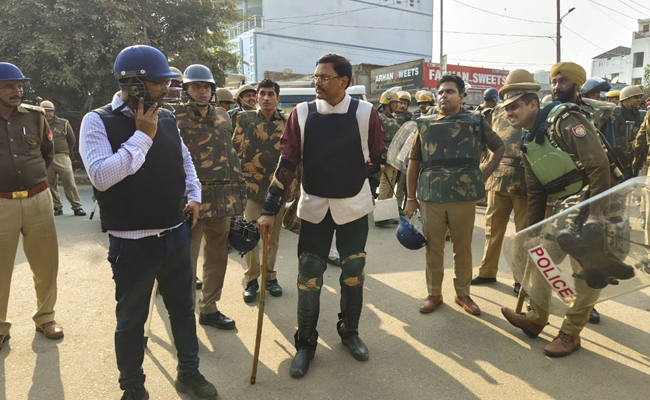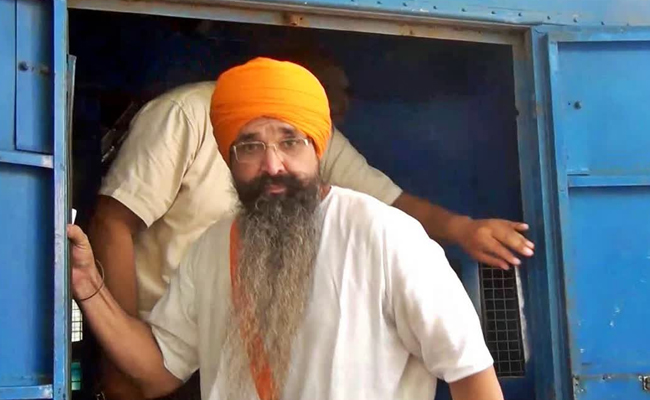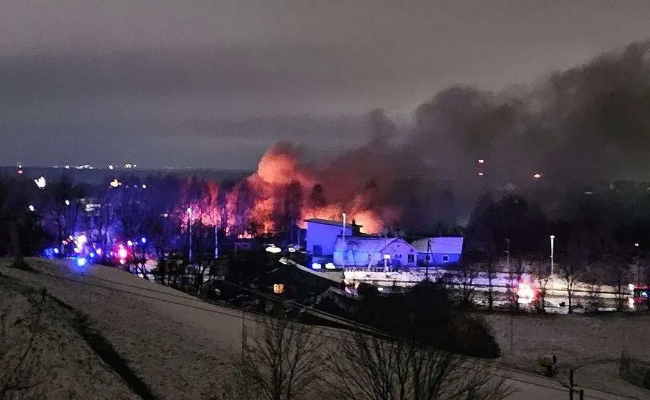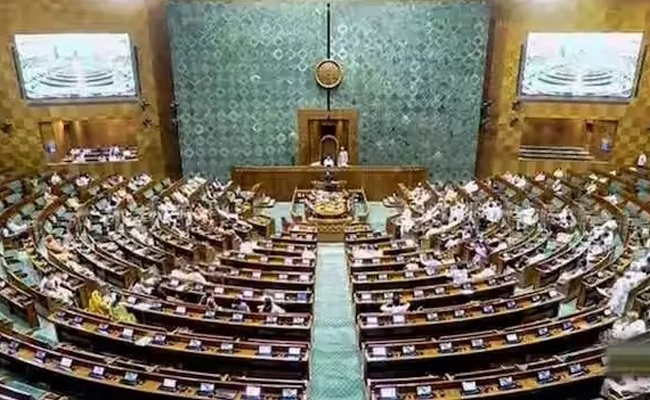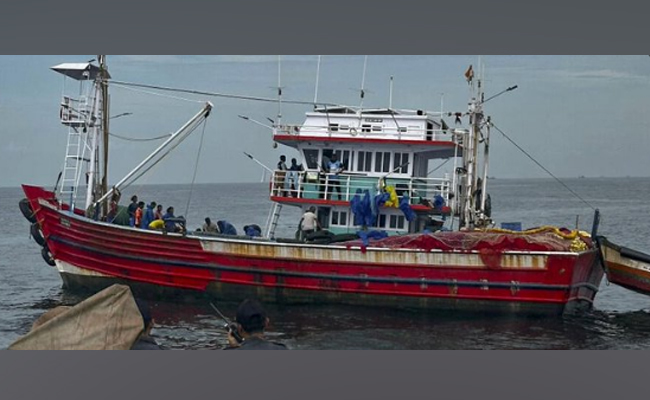Sambhal (UP) (PTI): The district administration has imposed prohibitory orders and barred the entry of outsiders till November 30 after three men were killed and scores of others, including security and administration personnel, injured in a violence by protesters opposing a court-ordered survey of a Mughal-era mosque.
The order has been issued under provisions of the Bharatiya Nyaya Sanhita (BNS), said District Magistrate Rajender Pensiya late on Sunday.
"No outsiders, other social organisations or public representatives will enter the district border without the permission of the competent officer," said the order, which came into force with immediate effect.
Violation of the order will be punishable under Section 223 (disobedience to order duly promulgated by public servant) of the BNS.
Violence broke out in the district on Sunday as protesters opposing the survey of the Jama Masjid clashed with security personnel. The protesters torched vehicles and pelted the police with stones while the security personnel used tear gas and batons to disperse the mob.
Divisional Commissioner (Moradabad) Aunjaneya Kumar Singh said on Sunday, "Shots were fired by miscreants... the PRO of the superintendent of police suffered a gunshot to the leg, the circle officer was hit by pellets and 15 to 20 security personnel were injured in the violence."
A constable also suffered a serious head injury while the deputy collector fractured his leg.
"Three people, identified as Naeem, Bilal and Nauman, have been killed," Singh said.
Twenty-one people, including two women, have been detained and a probe has been launched, the official had said, adding that those accused in the violence would be booked under the stringent National Security Act (NSA).
District Magistrate Rajender Pensiya said, "The casualty count stands at three. The reason for the deaths of two is clear -- bullet wounds from countrymade pistols. The reason for the death of the third person is not clear but it will be after post-mortem."
Internet services were soon suspended in Sambhal tehsil for 24 hours and the district administration declared a holiday in all schools for Monday.
Tension had been brewing in Sambhal since November 19 when the Jama Masjid was first surveyed on the court's orders following a petition claiming that a Harihar temple had stood at the site.
Trouble started early on Sunday when a large group of people gathered near the mosque and started shouting slogans as the survey team began its work.
District officials said the survey could not be completed on Tuesday and was planned for Sunday to avoid interference with afternoon prayers.
Supreme Court lawyer Vishnu Shankar Jain, who is a petitioner in the case, had earlier said the Court of Civil Judge (Senior Division) ordered the constitution of an "advocate commission" to survey the mosque.
The court has said a report should be filed after conducting a videography and photography survey through the commission, he had said.
On Sunday, Jain urged the Archaeological Survey of India to take control of the "temple".
Gopal Sharma, a local lawyer for the Hindu side, had earlier claimed the temple that once stood at the site was demolished by Mughal Emperor Babur in 1529.
Let the Truth be known. If you read VB and like VB, please be a VB Supporter and Help us deliver the Truth to one and all.
New Delhi (PTI): The Centre on Monday told the Supreme Court that there was sensitivity involved in the matter related to the mercy petition of death row convict Balwant Singh Rajoana, convicted in the 1995 assassination case of then Punjab chief minister Beant Singh.
A bench headed by Justice B R Gavai was hearing Rajoana's plea seeking directions to commute his death sentence to life term due to the "inordinate delay" in deciding his mercy petition.
"There is a sensitivity involved. Some agencies will have to be consulted," Solicitor General Tushar Mehta told the bench, also comprising Justices P K Mishra and K V Viswanathan.
Additional Solicitor General K M Nataraj, who also appeared in the matter, said the issue was being reviewed by the government.
He said since the issue was sensitive, some more inputs were required in the matter.
The bench said it would hear the plea after four weeks.
While hearing the petition on November 18, the apex court had put on hold its order asking President Droupadi Murmu's secretary to place before her the mercy petition of Rajoana for consideration.
After the order was passed in the morning on November 18, the solicitor general had urged the bench that it should not be given effect as there were "sensitivities" involved in the issue.
Mehta had told the top court that the file was with the home ministry and not the President.
On September 25, the top court sought responses from the Centre, the Punjab government and the administration of the Union Territory of Chandigarh on Rajoana's plea.
The then Punjab chief minister and 16 others were killed in a blast at the entrance of the civil secretariat in Chandigarh on August 31, 1995. A special court sentenced Rajoana to death in July 2007.
In his plea, Rajoana has sought the apex court's direction to the respondent authorities to commute his death sentence "due to inordinate delay" in its execution and in deciding the "mercy petition filed on his behalf".
The plea said consequentially, a direction be issued for his release.
On May 3 last year, the apex court refused to commute his death sentence and said the competent authority could deal with his mercy plea.
In his fresh plea, Rajoana has said he has undergone a total sentence of about 28 years and eight months, of which 17 years have been served as a death row convict.
He has said that in March 2012, a mercy petition under Article 72 of the Constitution was preferred by the Shiromani Gurdwara Parbandhak Committee seeking clemency on his behalf.
The plea said over a year has elapsed since the top court had directed the competent authority, in due course of time, to deal with the mercy petition filed on his behalf and take further decision thereon.
It referred to an April last year order of the top court in a separate matter in which the court had directed all the states and appropriate authorities to decide the pending mercy petitions at the earliest and without any inordinate delay.

